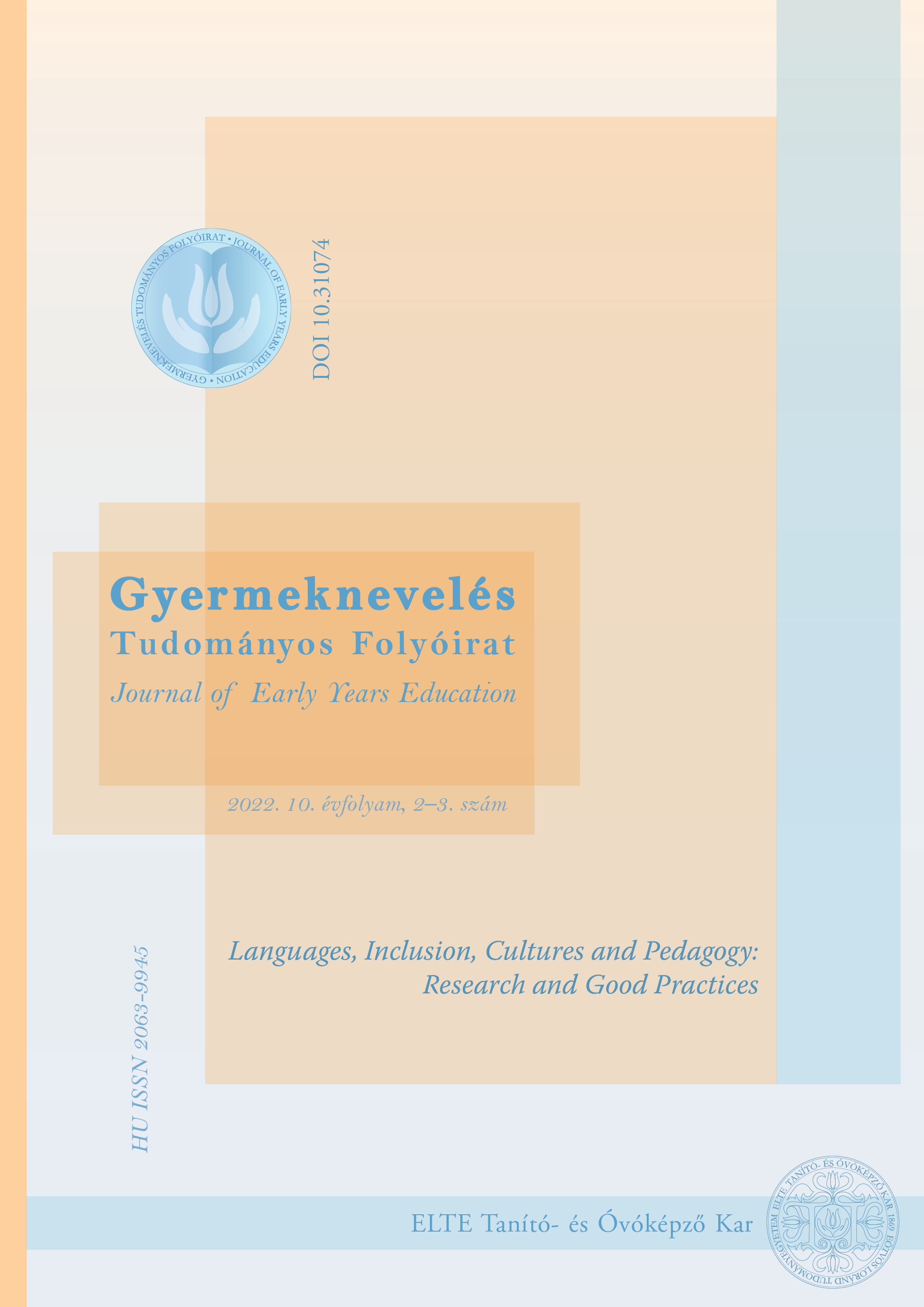Prospective teachers’ attitudes and relations toward the culture of English-speaking countries regarding their specialisation
DOI:
https://doi.org/10.31074/gyntf.2022.2.19.26Kulcsszavak:
English culture, teacher education, metaphor researchAbsztrakt
By using spontaneous metaphor research, our paper investigates prospective primary school teachers’ attitudes and relations toward the culture of English-speaking countries and learning English as a foreign language. Metaphors reveal people’s subconscious ideas and understandings towards their beliefs and attitudes, in this case, towards the culture of English-speaking countries. The participants consisted of student teachers specialising in English (N=12) or another specialisation (N=20). In addition, students’ English proficiency was also reflected in this grouping, which helped to demonstrate the effects of prior English knowledge and experiences. An elicitation sheet with the unfinished sentence, “Foreign language learning is like ... because ...” was used as the tool of data collection. The data were analysed qualitatively by coding, categorising, and finalising the metaphors. The present paper focuses exclusively on the data in connection with the concept of culture while analyses of the other concepts are described in Kisné Bernhardt and Furcsa (2020). The findings of the metaphor research revealed different attitudes according to teacher students’ specialisations and therefore contribute to a deeper understanding of selecting appropriate approaches to English teaching. In our paper, we first describe the importance and role of cultural beliefs in language teaching, then we focus on various aspects of metaphor research. The sociocultural dimension of metaphor research aims at investigating the involvement of sociocultural factors in the process of conceptualisation. In the second part of the paper, the findings of our metaphor research are presented.
Letöltések
Hivatkozások
Fábián, Gy. (2013). The application of improved metaphor analysis in education research. Procedia – Social and Behavioral Sciences, 93, 1025–1029. https://doi.org/10.1016/j.sbspro.2013.09.323
Fónagy, I. (2000). A költői nyelvről. Corvina Kiadó.
Gabillon, Z. (2005). L2 learner’s beliefs: An overview. Journal of Language and Learning, 3(2), 233–260.
Kisné Bernhardt, R. & Furcsa, L. (2020). Elixir highway code or mysteryˇ – teacher students’ attitudes and beliefs about foreign language learning. In Varró, B. & Sebestyénné Kereszthidi, Á. (Eds.), Testvérvárosi gondolatok a pedagógiáról. Vechta – Jászberény (pp. 91–101). Líceum Kiadó.
Lakoff, G. (2006). Conceptual metaphor: The contemporary theory of metaphor. In Geeraerts, D. (Ed.), Cognitive linguistics: Basic readings (pp. 185–238). Mouton de Gruyter. https://doi.org/10.1515/9783110199901.185
Lakoff, G. & Johnson, M. (1980). Metaphors we live by. The University of Chicago Press.
Şimşek, M. R. (2014). A metaphor analysis of English teacher candidates’ pre- and post-course beliefs about language and teaching. Dicle Üniversitesi Ziya Gökalp Eğitim Fakültesi Dergisi, 22, 230–247. https://dergipark.org.tr/tr/download/article-file/786796
Szaszkó, R. (2010). The effects of intercultural contact on adult Hungarians’ motivation for learning English as a foreign language. Unpublished Ph.D. dissertation, ELTE, Budapest.
Trentinné Benkő, É. (2016). Pedagógusnézetek megismerésének lehetőségei a kétnyelvi pedagógusképzés és továbbképzés kontextusában. Gyermeknevelés Tudományos Folyóirat, 4(1), 158–171. https://doi.org/10.31074/gyntf.2016.1.158.171
Vámos, Á. (2003). Metafora a pedagógiai kutatásban. Iskolakultúra, 13(4), 109–112. http://real.mtak.hu/60696/1/EPA00011_iskolakultura_2003_04_109-112.pdf
Weninger, C. & Kiss, T. (2013). Culture in English as a Foreign Language (EFL) textbooks: a semiotic approach. TESOL Quarterly, 47(4), 694–716. https://doi.org/10.1002/tesq.87
##submission.additionalFiles##
Megjelent
Hogyan kell idézni
Folyóiratszám
Rovat
License
Copyright (c) 2022 Szerző

This work is licensed under a Creative Commons Attribution-NonCommercial-ShareAlike 4.0 International License.

